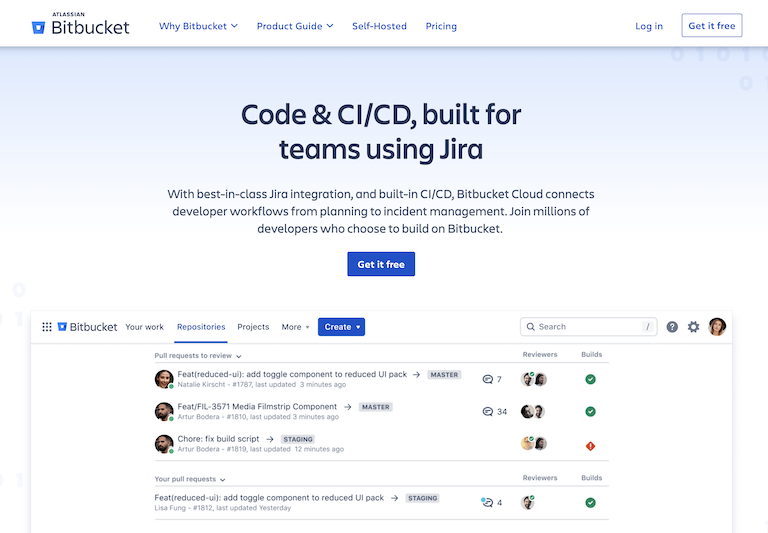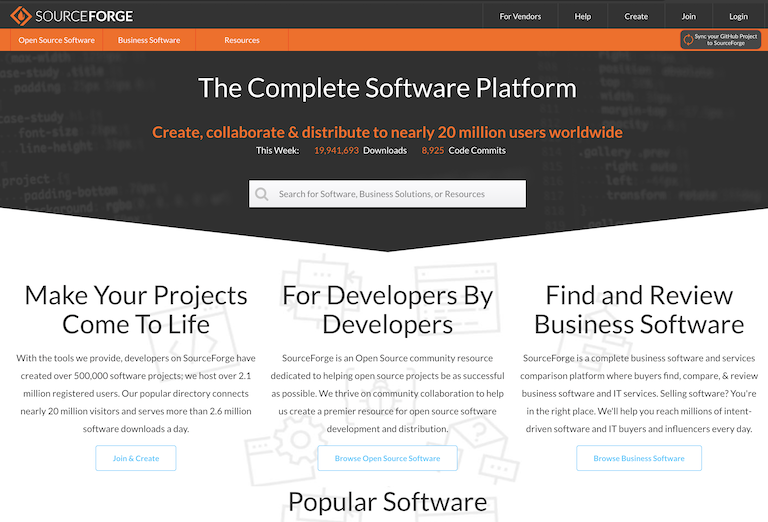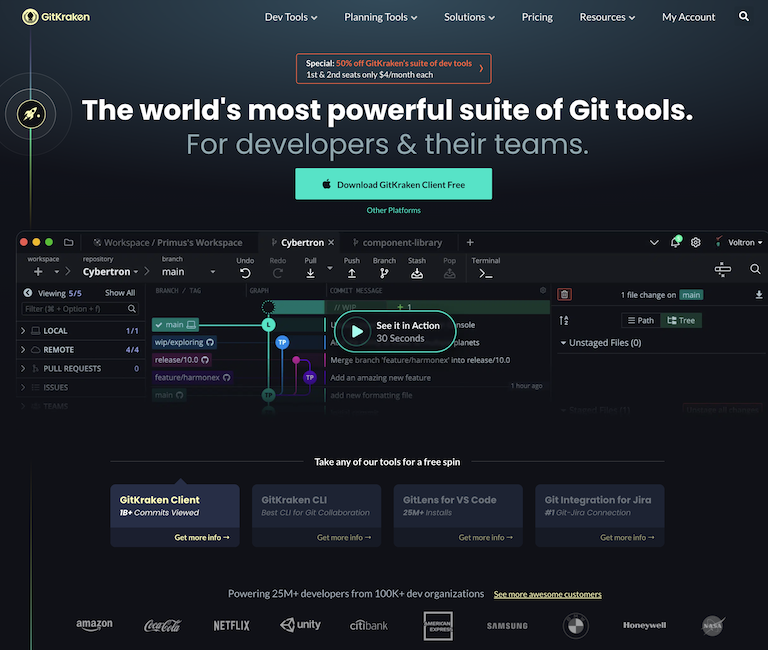
GitHub and other code hosting platforms
When it comes to hosting and collaborating on software projects, while GitHub is the most famous one, there are many platforms to choose from. Each platform has its own unique features, strengths, and weaknesses. In this guide, we’ll cover some of the most popular platforms and help you choose the right one for your project.
GitHub
GitHub is the most popular platform for hosting and collaborating on software projects. It is a web-based platform that uses Git for version control. GitHub offers features like pull requests, code reviews, and project management tools. It also integrates with many other development tools and services. One of the main strengths of GitHub is its large community of users and contributors. However, one weakness of GitHub is that some features are limited to paid plans.
GitLab

GitLab is an open-source platform for hosting and collaborating on software projects. It is similar to GitHub in many ways, but offers additional features like continuous integration and delivery, issue tracking, and more. GitLab can be used both as a cloud-based platform or self-hosted. One of the main strengths of GitLab is its extensive feature set, which makes it a good choice for larger, more complex projects. However, one weakness of GitLab is that its interface can be overwhelming for new users.
Bitbucket

Bitbucket is a web-based platform for hosting and collaborating on software projects. It is owned by Atlassian, the company behind other development tools like JIRA and Confluence. Bitbucket offers features like Git and Mercurial support, pull requests, and continuous integration and delivery. It is often used by companies that use other Atlassian products. One of the main strengths of Bitbucket is its integration with other Atlassian tools. However, one weakness of Bitbucket is that its free plan is limited to 5 users.
SourceForge

SourceForge is a web-based platform that offers a range of features for software development, including version control, issue tracking, and project management. It has been around since 1999 and is one of the oldest web-based version control repositories. SourceForge is primarily used by open-source software projects. One of the main strengths of SourceForge is its longevity and reputation in the open-source community. However, one weakness of SourceForge is that it can be less user-friendly than some other platforms.
Launchpad
Launchpad is a web-based platform for software development that offers features like version control, bug tracking, and code hosting. It is primarily used by open-source software projects and is owned by Canonical, the company behind Ubuntu. Launchpad is similar to SourceForge in many ways, but is focused more on Ubuntu-related projects. One of the main strengths of Launchpad is its integration with Ubuntu and other Canonical products. However, one weakness of Launchpad is that it can be less feature-rich than some other platforms.
GitKraken

GitKraken is a Git client that offers a visual interface for managing Git repositories. It can be used with both GitHub and other Git hosting platforms. GitKraken offers features like pull requests, code
reviews, and integrations with other development tools. It also has a built-in merge conflict editor that makes resolving conflicts easier. One of the main strengths of GitKraken is its user-friendly interface and visual tools. However, one weakness of GitKraken is that it is primarily a Git client and does not offer all of the features of other hosting platforms.
Choosing the Right Platform GitHub vs Others
When choosing a platform for hosting and collaborating on software projects, it’s important to consider your project’s specific needs and goals. Some things to consider when choosing a platform include:
Features: What features do you need for your project? Consider things like version control, issue tracking, project management, and continuous integration and delivery.
User base: Do you need a platform with a large community of users and contributors, or are you okay with a smaller user base?
Integration: What other development tools do you use, and does the platform integrate well with them?
Price: What is your budget for hosting and collaborating on your project?
By considering these factors and exploring the different platforms available, you can choose the platform that best fits your project’s needs. Remember that you can always switch platforms if your needs change in the future. If you are looking to start with GitHub here is an article that might be able to help: How To Create a GitHub Repo. Happy coding!